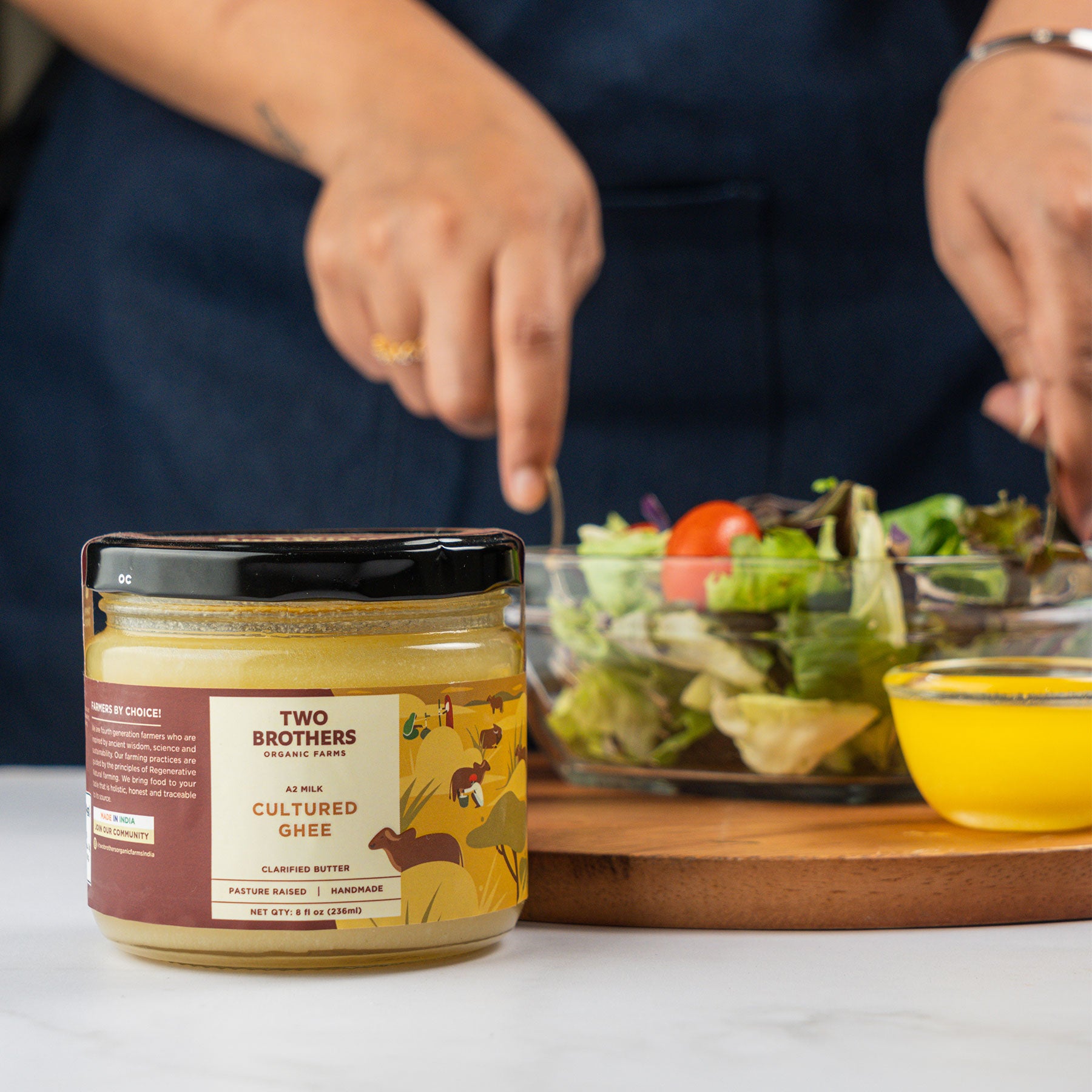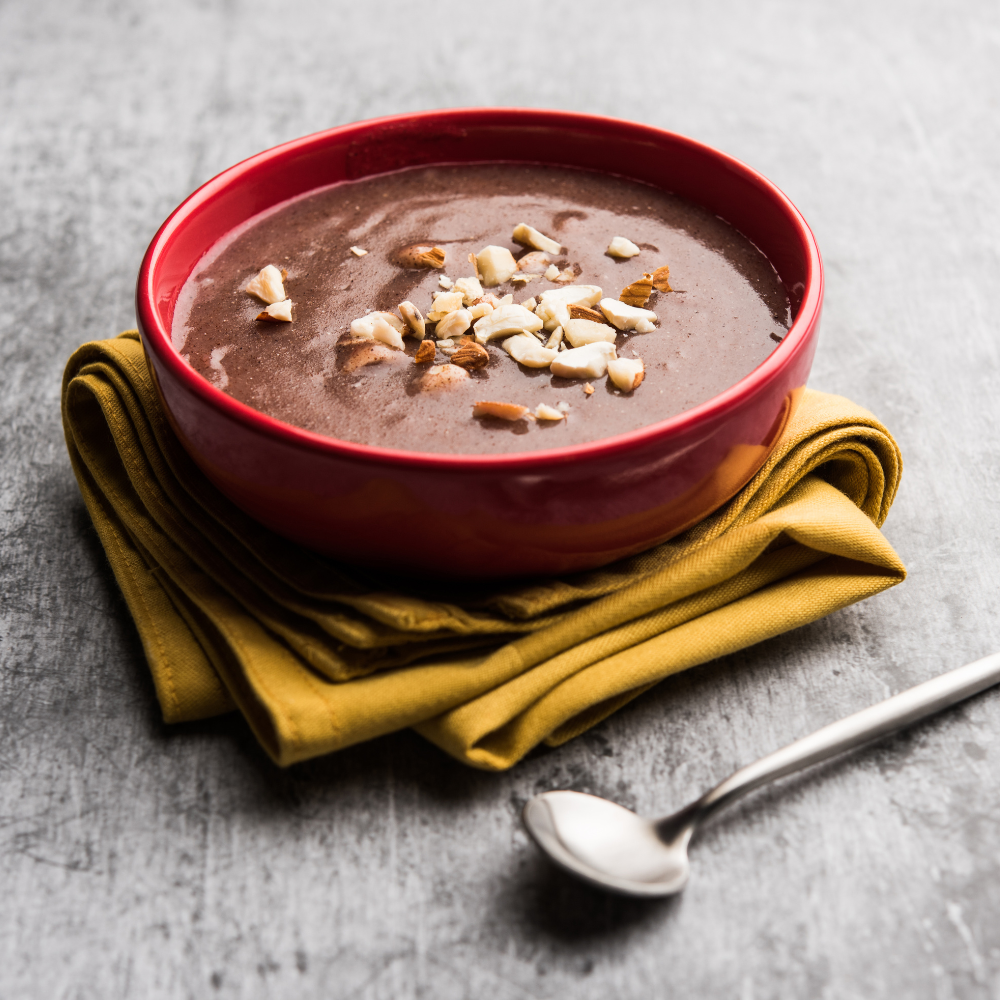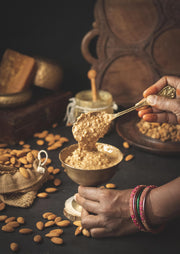How often did you stop your mother from adding ghee to your dal, rice, or chapati thinking it’s not good for you? And your mother would not listen to a word you said and simply say, eat ghee. It’s good for your health.
Today, science is proving that your mother’s love for ghee was right. A2 ghee strengthens the body in several ways.
It keeps your gut healthy, helps your body soak up important vitamins, takes care of your heart and joints, makes your skin and hair happy, etc.
How does A2 ghee work its magic in boosting our overall immunity?
This blog on “A2 ghee for immune support” will discuss the 10 ways in which A2 cow ghee provides support to our health, and helps us lead a fitter life.
Let’s begin!
|
Table of Contents
|
Did You Know?
A2 ghee has a similar chemical composition to that of a mother’s milk. That’s why in villages if a mother is not lactating enough, the baby is given desi cow milk, and not the milk of a hybrid cow. No wonder, in India a cow is called ‘Gomata’ or mother.
Unlocking 10 Immune Powers of A2 Ghee
A2 ghee isn't just a tasty addition to meals; it has some of the best immune-boosting powers due to the nutrients present in it.
Now, let’s see how the nutrients present in A2 ghee provide immune support to your body.

1. A2 Ghee is Rich in Vitamins Supporting Immunity
Ghee is known for its immuno-nutrient properties. It is rich in several essential fat-soluble vitamins like A, D, E, and K. These vitamins support the body in maintaining vital functions like bone formation, fighting infections, supporting growth and development of brain and nervous systems, repairing cell barriers and skin cells, etc.
2. A2 Ghee Has Anticancer, Antiallergic, and Anti-inflammatory Properties
Desi A2 ghee contains Conjugated Linoleic Acid (CLA). This amino acid has been directly linked to several immune responses. A study suggested that a diet rich in grass-fed ghee reduced tumour growth and fatty cells in the liver. It was also found that CLA has anticancer, antiallergic, and anti-inflammatory properties.
3. A2 Ghee Has Wound-Healing Properties
Ghee is known for its anti-ageing properties. Meaning that it repairs cells and builds collagen. These two functions are crucial for healing any wound, external or internal. Therefore, consuming ghee helps relieve pile symptoms and is anti-inflammatory. When applied topically, it protects the wound from foreign particles while slowly repairing it.
4. A2 Ghee Has Anti-diabetic Effects
The nutrients found in ghee have anti-diabetic properties and can be beneficial in treating people with diabetes. The fatty acids present in cow ghee regulate fat deposition and improve insulin secretion. Since it is pure fat, it doesn’t cause a rise in blood sugar levels. Thus controlling diabetes.
5. A2 Ghee Also Provides Relief in Epilepsy in Children
The vitamins A and E are in good amounts in Cow ghee. Both vitamins have antioxidant properties and help keep the brain healthy. Ghee, in moderate consumption, can be used to decrease the symptoms of epilepsy when administered with standard drugs.
6. A2 Ghee Protects Heart And Liver
A2 ghee consumption is good for your heart and liver health. It’s been found that ghee helps in lowering bad cholesterol levels and increases the good fats in the blood. It is also good for maintaining the health of heart muscles.
Similarly, as A2 ghee is made of mostly short and medium-chain fatty acids, it is easy to break down by the liver. It also helps in breaking the fat cells deposited on liver walls. Thus, making it an incredible support for your heart and liver’s health.
7. A2 Ghee Improves Eye Health
The abundance of Vitamin E and beta-carotene in A2 ghee supports eye health. It keeps the eyes moist, protects the eyeball's outer lining, and prevents blindness. It can be used as an eyedrop to support eye function.
8. A2 Ghee Has Antistress Properties
A2 ghee has stress-relieving properties. The use of medicinal ghee, which is ghee infused with ayurvedic herbs like Brahmi and Ashwagandha, is known to have a positive effect on the central nervous system.
Ayurvedic ghee helps in regulating hormones, mood swings, and other degenerative disorders. It relaxes the brain and nervous system and helps reduce cortisol levels (stress hormone).
9. A2 Ghee Improves Memory
A2 cow ghee is known to easily penetrate through cells, especially the blood-brain barrier, which is not possible for many substances. Ghee is known to support the three aspects of memory– learning, memory, and recall. The presence of Docosahexaenoic Acid (DHA) or omega 3 fatty acid, along with fat-soluble vitamins, antioxidants, and conjugated linoleic acid (CLA), in ghee is the reason behind its positive effects on the brain.
10. A2 Ghee Improves Digestion
A2 ghee contains short and medium-chain fatty acids. These are more easily absorbed than long-chain fatty acids found in other vegetable oils. Ghee also stimulates the secretion of stomach acids. This acid aids in digestion.
Also, other fats and oils need the secretion from the pancreas, enzymes, and bile to be digested. But ghee, being fat-soluble, is absorbed without creating any heaviness in the stomach. Cow ghee also creates a lining in the gut, which helps digestion and absorption of food rapidly.
FAQs: A2 Ghee for Immune Support
Is ghee bad for mucus?
No, desi ghee decreases the production of mucus. It provides relief from chest congestion by balancing Kapha, or mucus, in the body.
What are the benefits of A2 ghee vs normal ghee?
A2 ghee is richer in nutrients, is easy to digest, and can be given to anybody. It is also digestible by people suffering from celiac bowel syndrome. It also digests quickly and helps in quicker digestion and absorption of food in the stomach.
Other ghee is not so easy to digest, can leave a heaviness in the stomach, and may also irritate people with irritable bowel syndrome, lactose intolerance, or who have a weaker metabolism.
Is it OK to eat ghee every day?
Yes, it is ok to eat A2 ghee every day given that it is consumed in moderation and you don’t have any medical conditions that don’t support fat.
Does ghee reduce inflammation?
A2 ghee contains a good amount of butyric acid and conjugated linoleic acid which are known for their anti-inflammatory properties. Therefore, yes, ghee can reduce inflammation.
Who should avoid ghee?
People who have slow metabolisms, are overweight or obese, and have been advised not to eat fat or have any illness should not consume ghee without a doctor’s consultation.
Does ghee fight infection?
The presence of vitamins A and D in ghee makes it a great food to fight infection. These two vitamins build a healthy immune system. Vitamin A aids in the production of white blood cells, which fight infection. Vitamin D helps to regulate the immune system and keep it functioning properly.
Conclusion
Regular consumption of A2 ghee for immune support is an effective strategy. A2 ghee, which is made from grass-fed indigenous cow’s milk, is of superior quality. The nutrient composition of A2 ghee supports the immune, digestive, nervous, and skeletal systems. It works on the overall growth and development of your body, which can’t be achieved by any other oil or fat.
However, be mindful of the quantity and quality of the ghee you are consuming. If you haven’t found a trusted brand for A2 cow ghee that’s organic, made traditionally by the Bilona method from the milk of the native breed of Cows.
Check out Two Brothers Organic Farm’s cultured A2 cow ghee and our range of ayurvedic ghee as well.
















